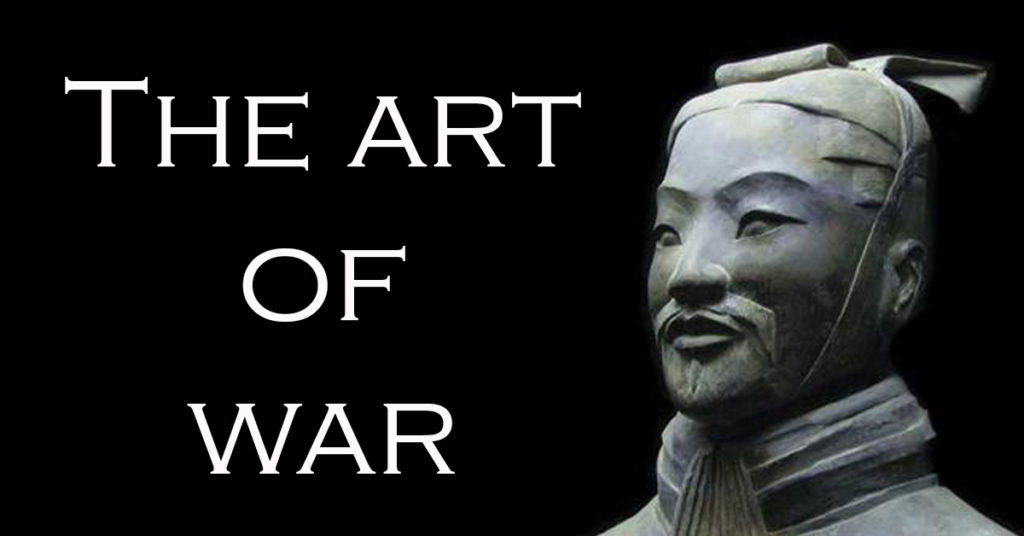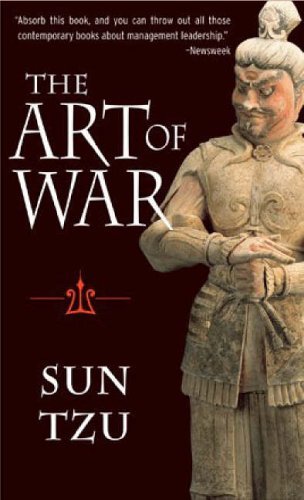
“All men see the tactics whereby I conquer, but what none can see is the strategy out of which victory is evolved.”
I usually summarize and review books, and develop general insights, but for The Art of War, I will instead relate Sun Tzu’s advice to business strategy and organizational management. The book is over two thousand years old, yet it continues to offer useful advice for leaders in various capacities.
Lesson One: Plan, and Keep Your Plans Close
“Thus do many calculations lead to victory, and few calculations to defeat: how much more no calculation at all!”
Planning is everything. A strategy that isn’t well thought-out is no strategy at all. A plan must be comprehensive and consider multiple factors: the product, price, bargaining of suppliers and demanders, competitors, economic trends, and more. Make the necessary calculations, or suffer defeat.
“…when able to attack, we must seem unable; when using our forces, we must seem inactive; when we are near, we must make the enemy believe we are far away; when far away, we must make him believe we are near.”
For Sun Tzu, deception of the enemy (for our purposes, the “enemy” is a business’s competitors) is a priority. I won’t ever champion or advise dishonesty, however, maintaining secrecy surrounding strategy is pertinent to creating a sustainable competitive advantage. For example, if a firm creates a new, inimitable technology like self-sustaining batteries, it is in the business’s interest to guard that information.
Lesson two: Understand Strengths and Weaknesses
“So in war, the way is to avoid what is strong and to strike at what is weak.”
“You can ensure the safety of your defense if you only hold positions that cannot be attacked.”
Understand your business’s and your competitor’s core competencies and weaknesses. This allows firms to leverage strengths and exploit the weaknesses of competitors. It is crucial when forming a strategy.
For instance, Uber was able to exploit weaknesses of taxi companies. Taxis are difficult to connect with, sometimes don’t serve your area, they lack price and route transparency, and they’re often dirty. Uber’s unique ridesharing model addressed these concerns.
Lesson three: Train, Respect, and Expect the Best from Employees
“If in training soldiers commands are habitually enforced, the army will be well-disciplined; if not, its discipline will be bad.”
“If a general shows confidence in his men but always insists on his orders being obeyed, the gain will be mutual.”
“If, however, you are indulgent, but unable to make your authority felt; kind-hearted but unable to enforce your commands; and incapable, moreover, of quelling disorder: then your soldiers must be likened to spoilt children; they are useless for any practical purpose.”
Treat employees well, but don’t settle for anything less than their best. If employees are well-trained, respected, properly rewarded, and are expected to meet high standards, they will excel. Indeed, it’s crucial that companies hire managers who are adept at bringing out the best in others.
My Recommendation
The Art of War does not replace books on business strategy or management; it supplements them. And, it does make a nice addition to any library. It’s the shortest book I’ve read this year, and it was enjoyable. Whether you’re a business leader, politician, or generally interested in strategy, I highly recommend it.
Get your copy of The Art of War
